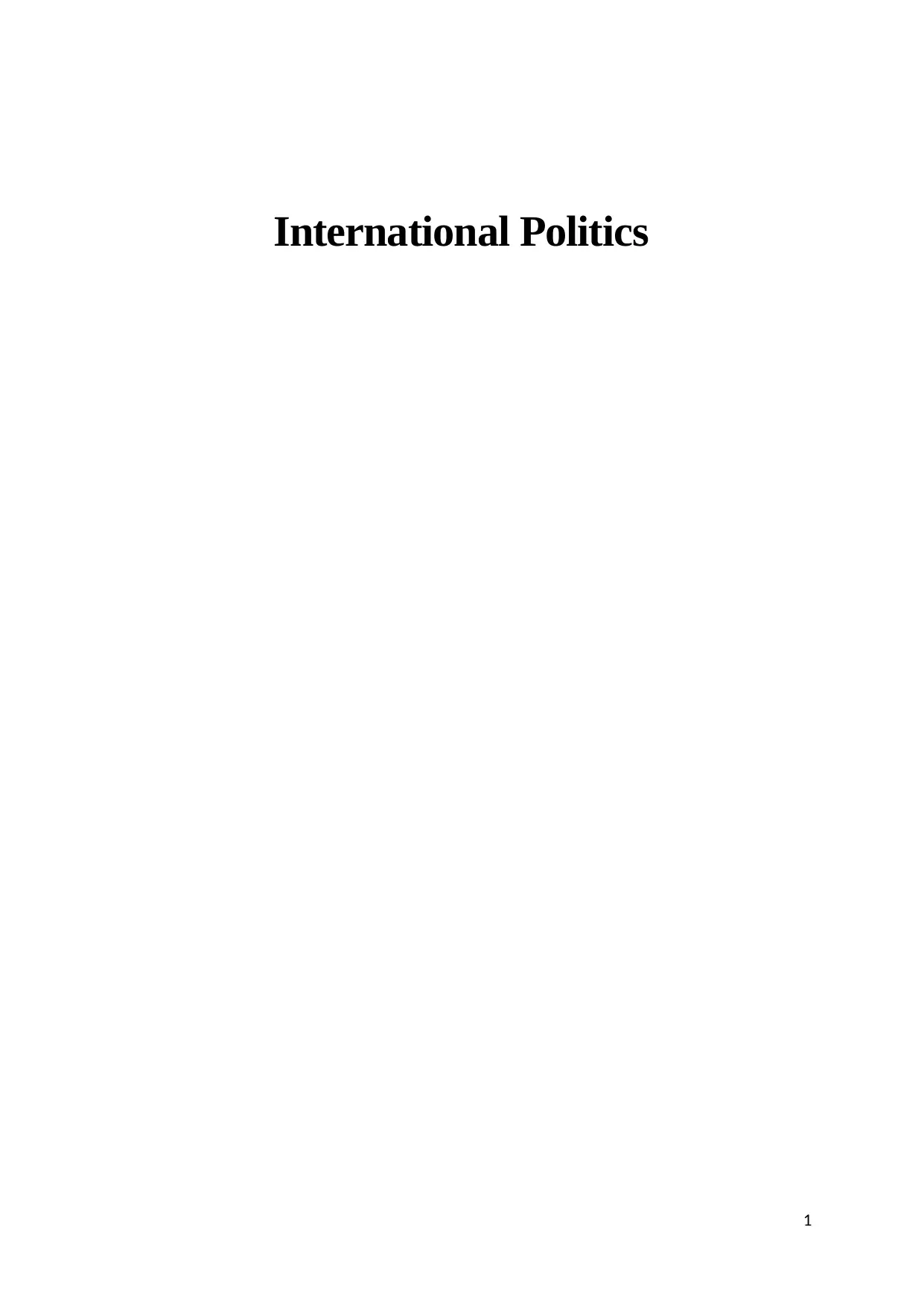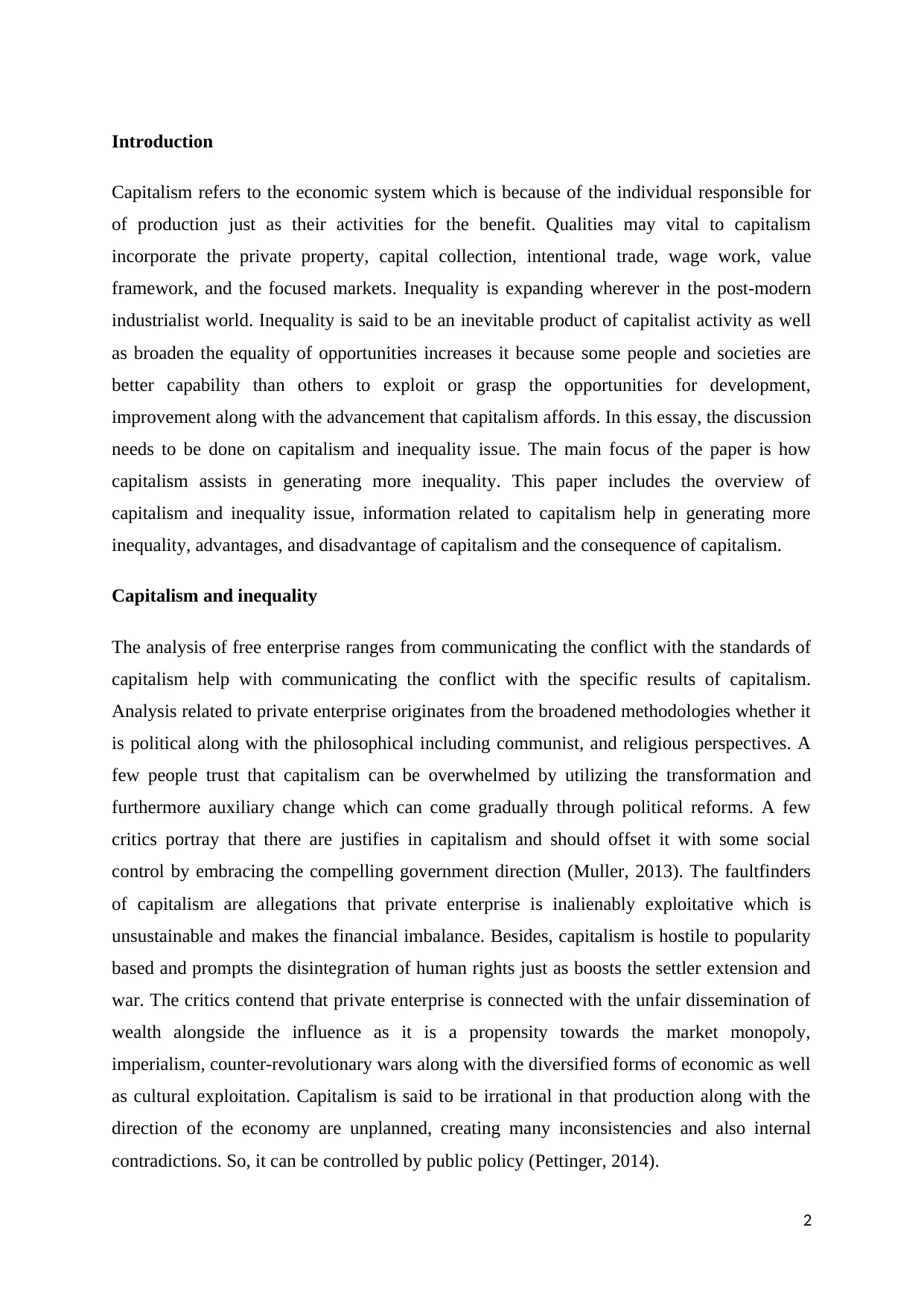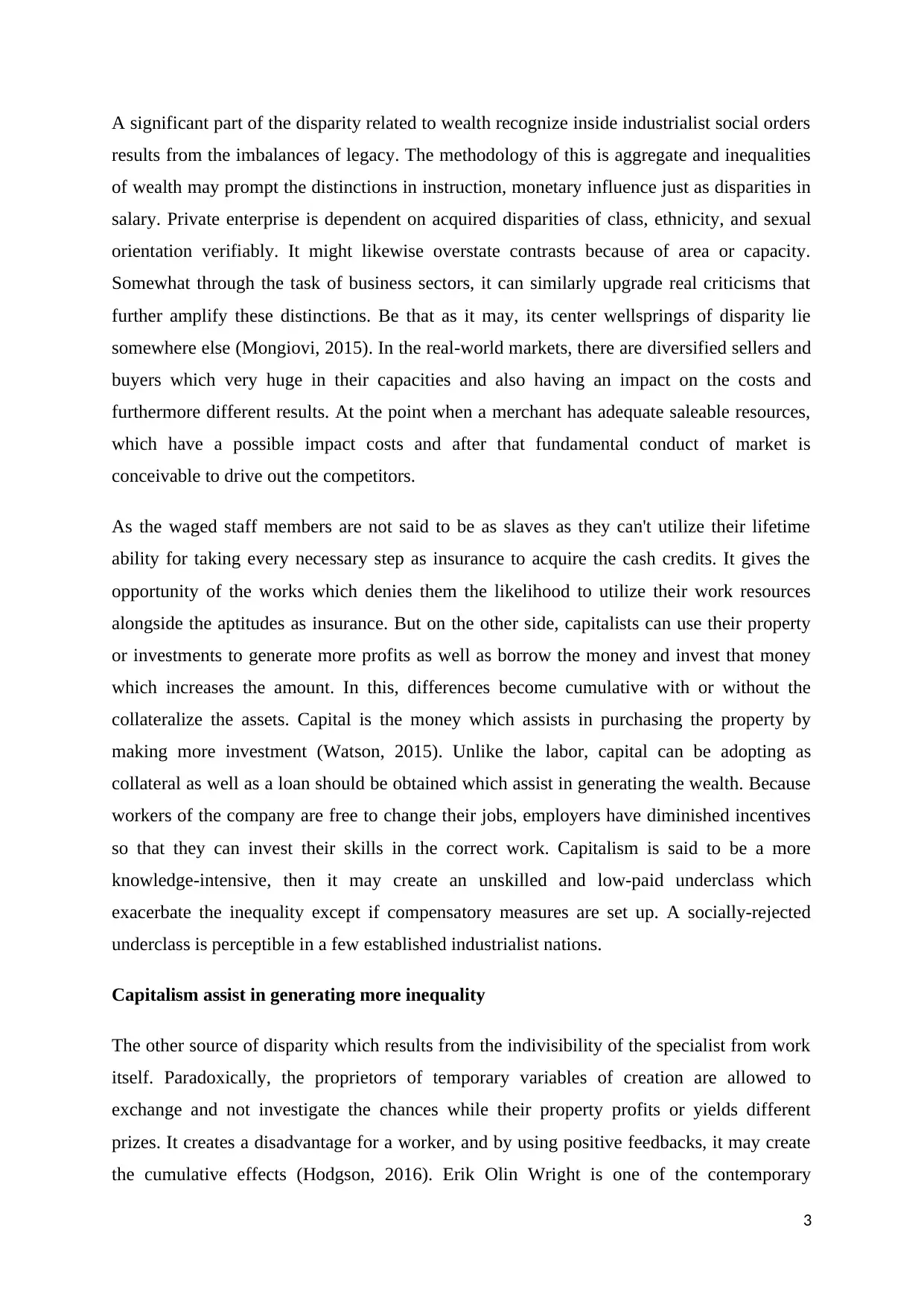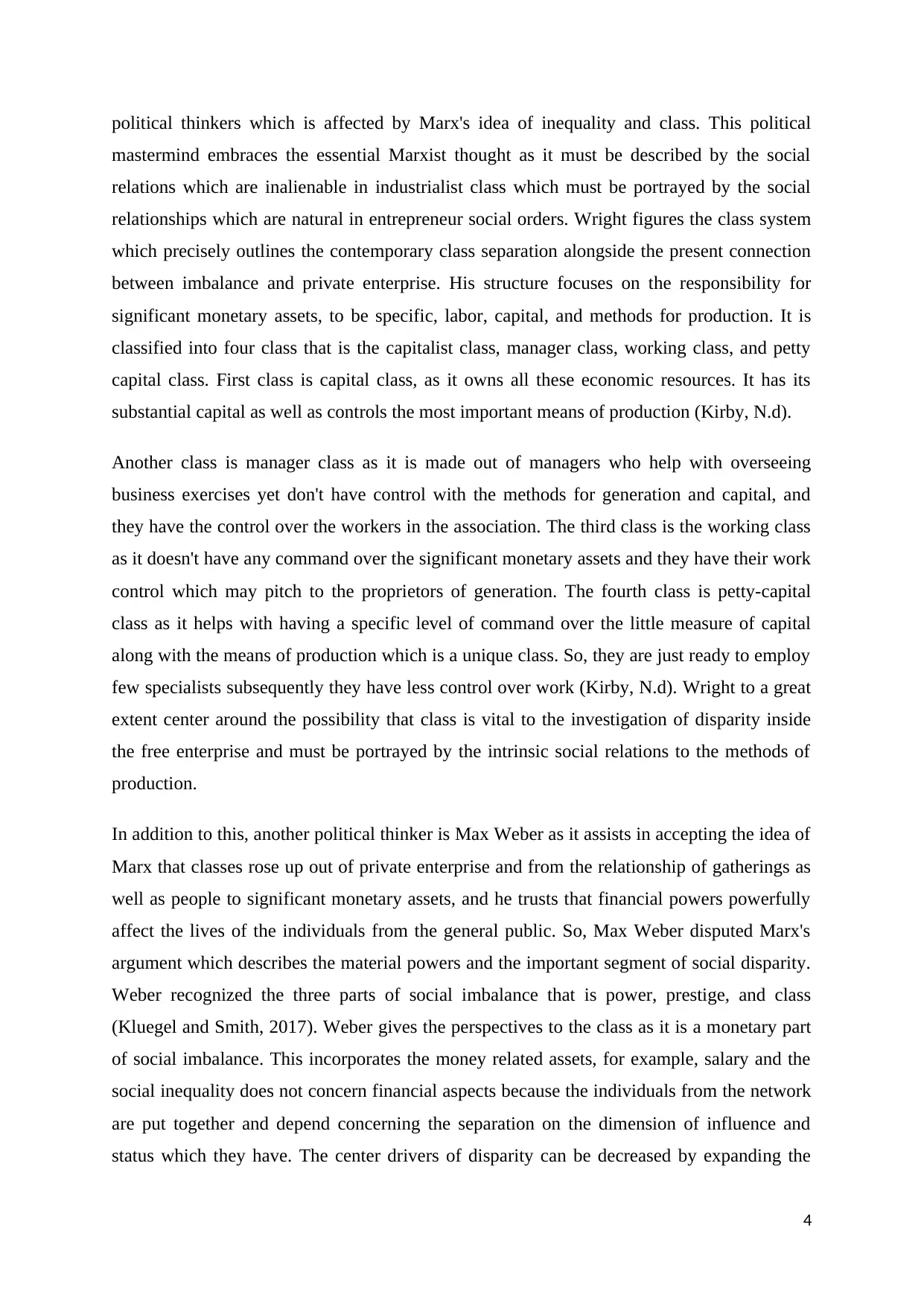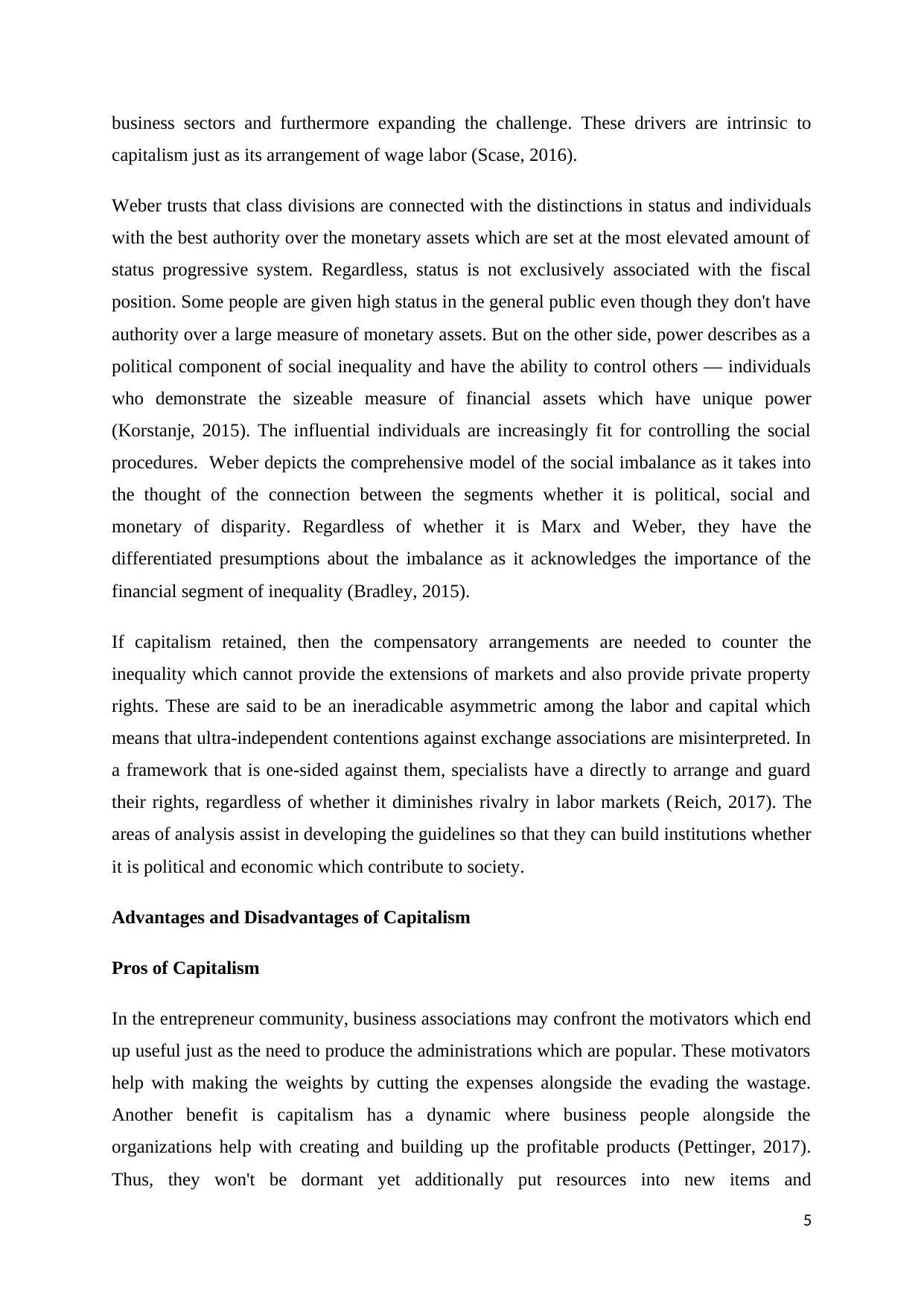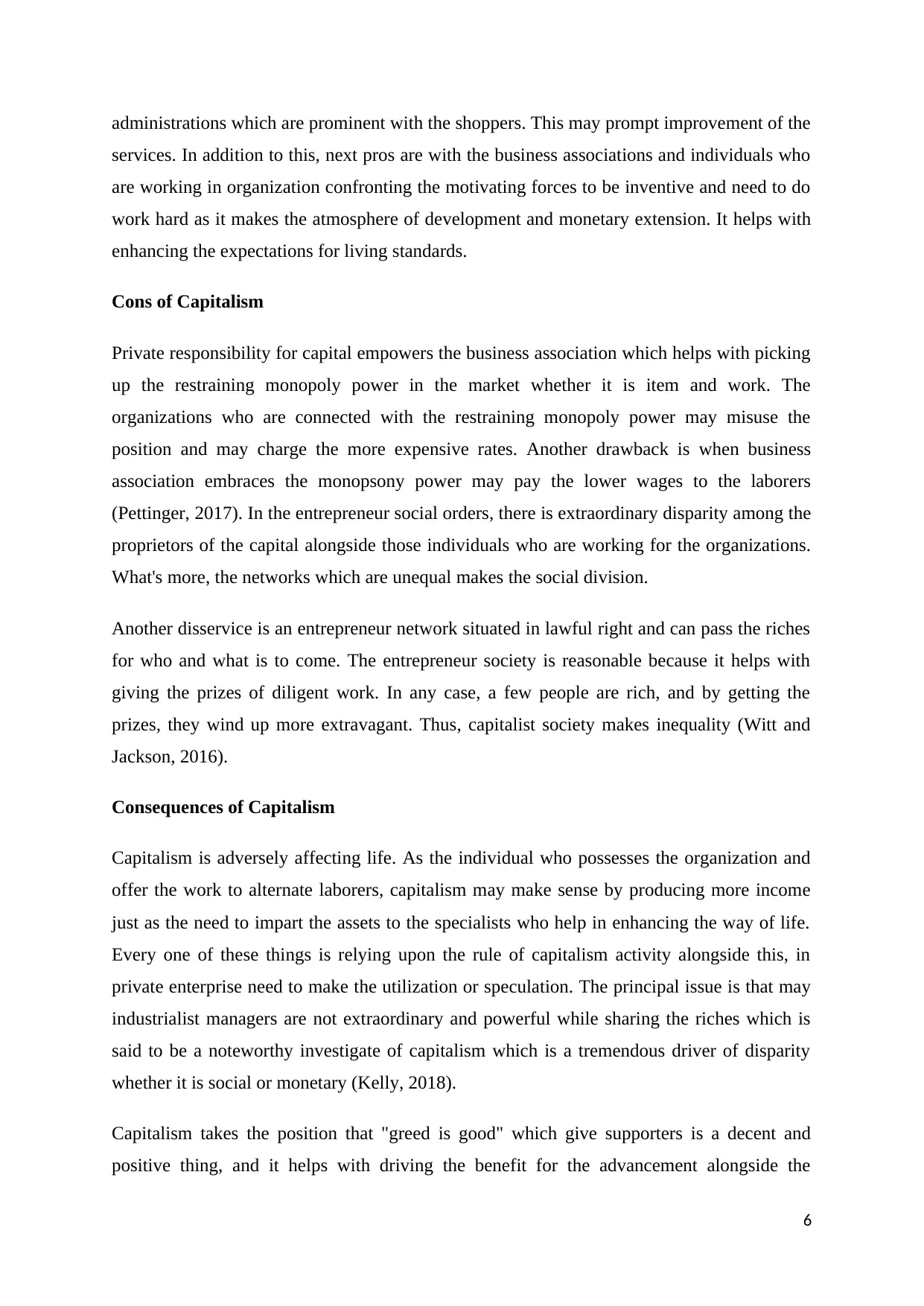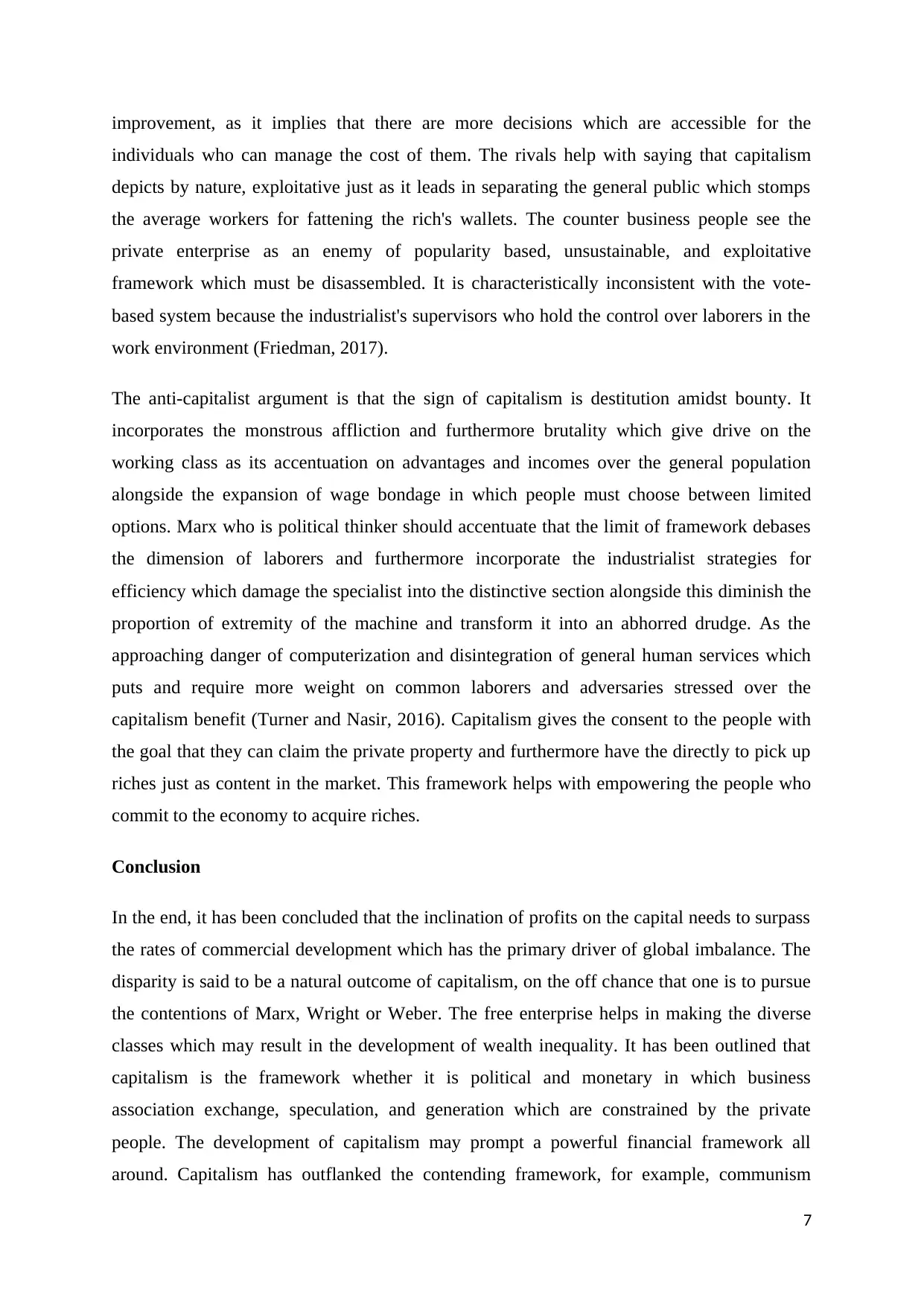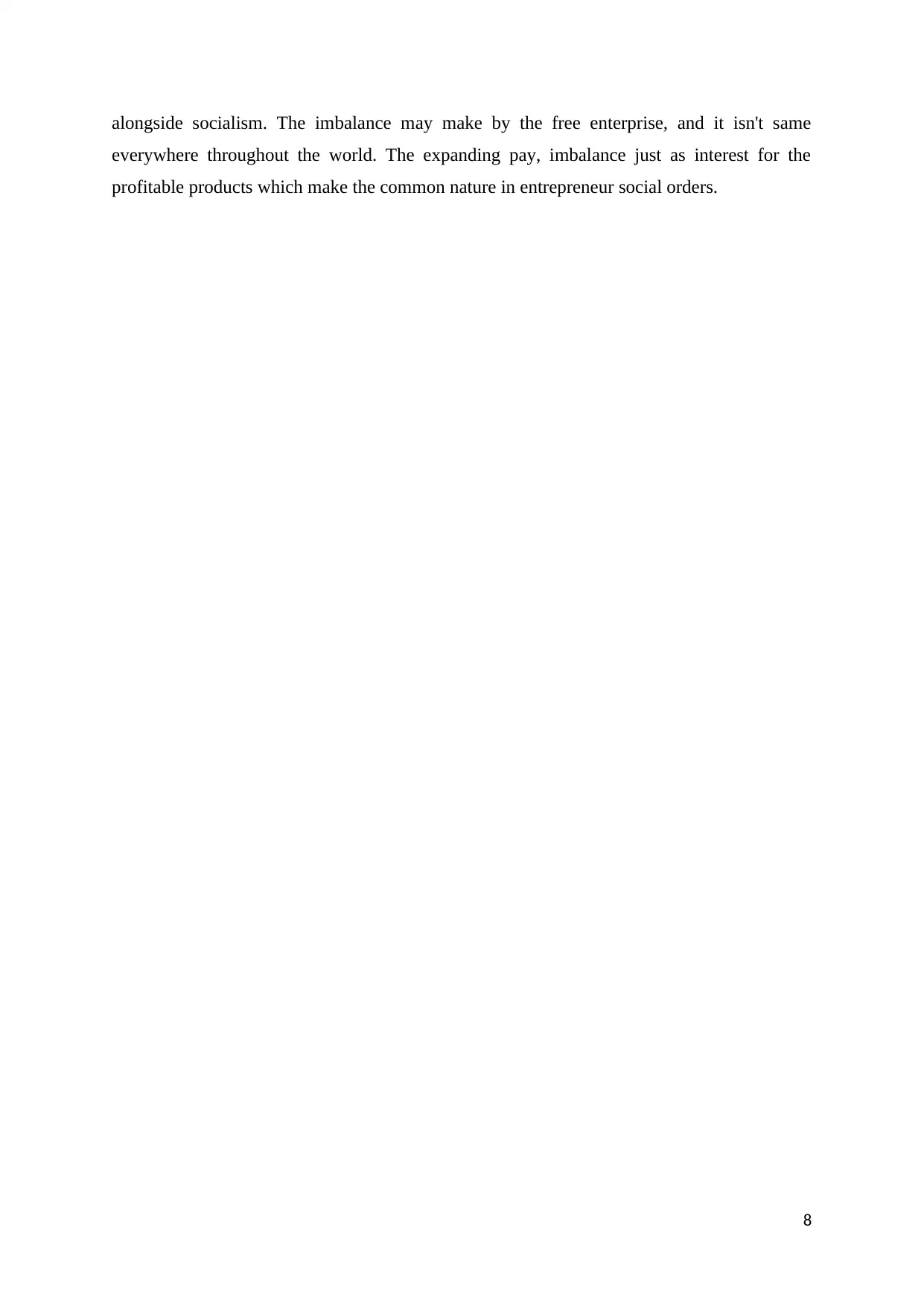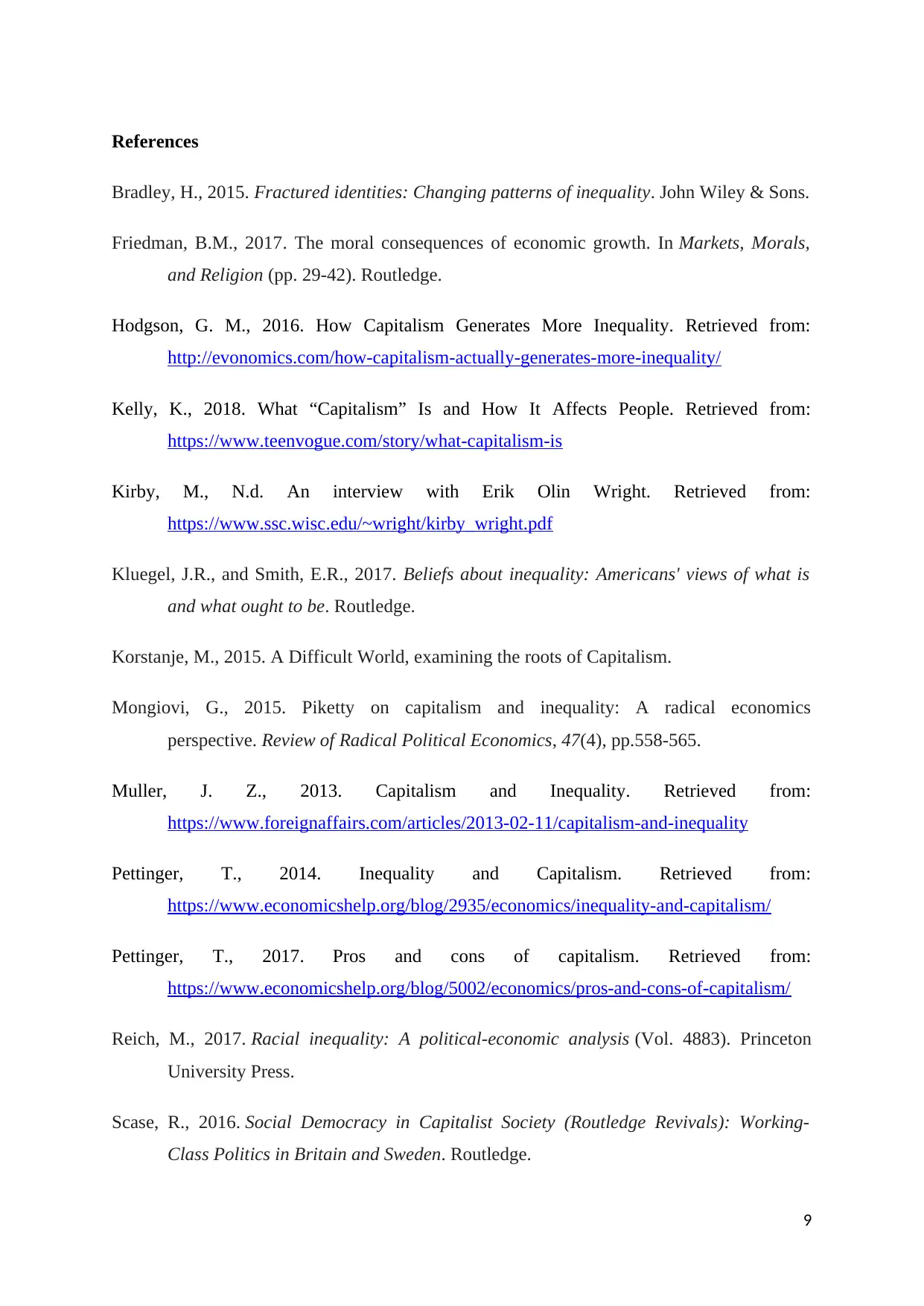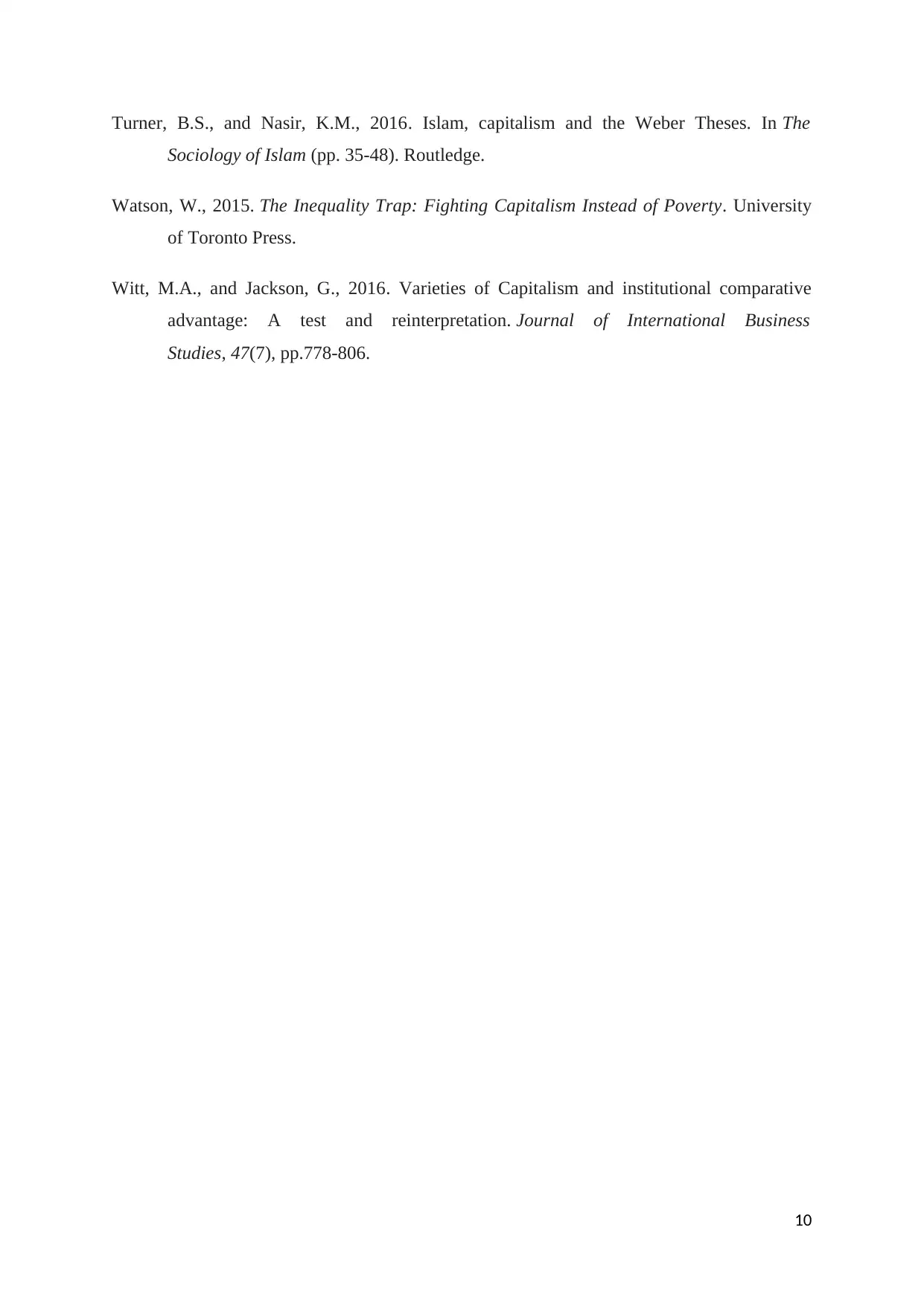The content discusses the pros and cons of capitalism. The advantages include the promotion of innovation and investment in new products and services that are popular with consumers, which can lead to economic growth and improved standards of living. Additionally, capitalism encourages entrepreneurship, creativity, and hard work among business associates and individuals working within organizations, leading to enhanced productivity and competitiveness. However, there are also several drawbacks to capitalism, including the concentration of wealth in the hands of a few powerful individuals or corporations, which can lead to social inequality and monopoly power that may be used to charge higher prices. The content also touches on the consequences of capitalism, including the potential for economic imbalance and increased disparity between the rich and the poor. Ultimately, the text concludes that while capitalism has its advantages, it is not a perfect system and must be carefully managed to ensure that its benefits are shared equitably.
![[object Object]](/_next/static/media/star-bottom.7253800d.svg)
![[object Object]](/_next/static/media/star-bottom.7253800d.svg)
